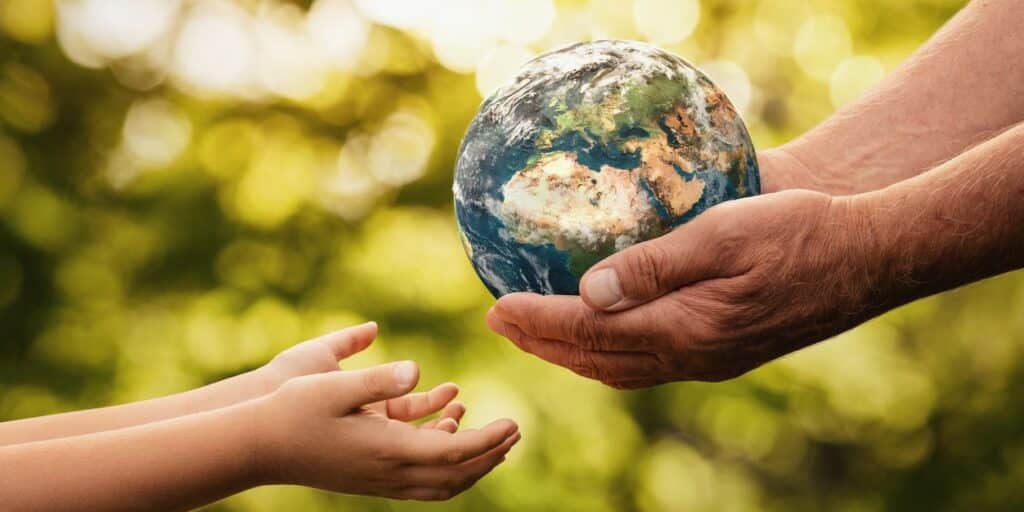IGHN Conference 2024 – Fostering Humanity: Promoting Health Equity for a Better Planet

IGHN Conference 2024 – Fostering Humanity: Promoting Health Equity for a Better Planet
Written by: Hannah Balda
3 October 2024
If I had one word to describe the 2024 Irish Global Health Network (IGHN) conference, it would be “inspiring”. Co-hosted by the Royal College of Surgeons in Ireland (RSCI), the theme of this year’s conference, Fostering Humanity, lead to some truly inspirational discussions and presentations of work from global health advocates around the world.
Throughout the two-day conference, I attended the parallel sessions in which scholars from Ireland and abroad presented their work to the audience. On the first day, I watched Parallel Session 1.1: Demonstrating the impact of the health partnership approach. Scholars discussed everything from the violent abuse experienced by children in Nigeria to the stigma of mental health conditions to improving medical care. Through partnerships with various Irish-based organisations, each speaker highlighted the benefits that those partnerships had on the local communities. One resounding message that spoke out in this session was the need to approach these partnerships and build programmes that not only include the expertise of the local population, but to create an initiative that was sustainable for long-term solutions.
Parallel Session 2.1: Intersectionality, health equity, and decolonisation was held in the afternoon of the first day of the conference. Our speakers discussed interesting topics, including artificial intelligence and One Health, as approaches for decolonising global health, while other speakers highlighted the importance of including adolescents in decision-making processes for research.
Day one wrapped up with the audience feeling energised and motivated to continue making a difference in the global health arena.
The second day of the conference hosted two new parallel sessions. I was fortunate enough to attend Parallel Sessions 3.1: Humanitarian crises and conflict and 3.2: Refugee and migrant health. Two topics that are of personal interest to me, the message that the most vulnerable groups are often those who end up suffering the most echoed loudly. In 3.1, we heard of how children are disproportionately affected by humanitarian crises, but how new technologies and artificial intelligence has the potential to lessen those impacts. In 3.2, we learned how creative initiatives can foster health in low-resource settings.
In the afternoon, I attended Parallel Session 4.1: Health equity and social determinants which focused specifically on improving healthcare systems to accommodate the mental and physical health of the most vulnerable groups. Speakers focused on the determinants of these needs, again making the point that the most vulnerable groups are those who have the most adverse health outcomes. The lack of resources contributes heavily to any healthcare system’s ability to address the needs of these vulnerable populations, however, there were many enlightening and creative solutions that were discussed to address this issue.
I recently finished my Master of Public Health programme at the University College Dublin, so I thought being at this conference would only be valuable for people who are young, passionate global health advocates such as myself. I was proven wrong. The amount of dedication and compassion and empathy expressed by everyone in this room, whether it was current students or people who dedicated their entire lives to global health, there was not one person at this conference who left uninspired. Despite all the conflicts going on in the world, especially in Gaza, Sudan, Yemen, Syria, Lebanon and more; the amount of effort put into each project was astounding. Christian Acemah, Uganda Academy of Sciences, summed up this conference perfectly when he said “the dedication is palpable… you have to care and you have to be interested and at the end of the day, it takes you being a human being.” This conference did indeed foster my humanity, as I’m sure it did for all those who were able to attend.
CATEGORIES
- Restore Humanity Campaign
- Equity in Action Blog
- Training Programmes
- Sponsorship
- Vaccine Equity
- Get Global – Global Health Talks
- Student Outreach Team
- Get Global Young Professionals Talk Global Health
- Global Health Matters – Live Event Series
- Global Health Matters – IGHN Live Event Series
- An initiative of Irish Global Health Network
- ESTHER Ireland and ESTHER Alliance for Global Health Partnerships
- Global Health Matters – Webinar Series
- ESTHER
- IGHN Conferences
- Global Health Conference 2020
- Women in Global Health – Ireland Chapter
- ESTHER Partnerships
- Weekly Webinar Series
- 4th Global Forum on HRH
- Access to Medicines
- Archive Page Weekly COVID Webinars
- Clean Cooking 2019
- Climate Change and Health Conference 2017
- Conference Abstracts
- Conference Materials
- Covid FAQ
- COVID Funding Opportunities
- COVID-19
- COVID-19: Gender Resources
- Dashboard and online resources
- Education
- ESTHER Alliance
- Events
- Events & News
- Funding covid
- Global Health Exchange 2018
- Global Health Exchange 2019
- Global Health symposium 2019
- Health Workforce/HRH
- Homepage Featured
- Homepage recent posts
- IFGH 2011-2012 Conference and Events
- IFGH 2014 Conference
- IFGH Multimedia
- Irish AIDS Day 2017
- Irish News and Feeds
- Key Correspondent Articles
- Key Correspondent News
- Maternal Health
- Multimedia
- News
- News & Events
- Newsletter
- Opportunity
- Our LMIC's Resources for COVID19
- Partner Country News and Feeds
- Past Events
- Policy
- Presentations
- Recurring events
- Reports & Publications
- Research
- Resources
- Student Outreach Group
- Students Corner
- TEDTalks
- TRAINING COURSES FOR HEALTH CARE PROFESSIONALS
- Uncategorized
- Upcoming Events
RECENT POSTS

Impact testimonies- Lombani

Impact Testimony – Shadrick

Power, Inequality, Decolonisation – and Living My Recovery By Bronwyn April

Global Health Without Borders: Reflections on the Power of Diverse Voices

IGHNxEU – Empowering Women for a Healthier Europe

